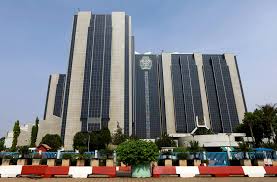The Central Bank of Nigeria (CBN) has decided to keep its interest rate steady at 27.5 per cent. This decision was announced after the bank’s 300th Monetary Policy Committee (MPC) meeting, held in Abuja on May 20, 2025. CBN Governor, Mr. Olayemi Cardoso, said the bank made the decision because of improved stability in the foreign exchange market, rising external reserves, and the need to monitor the impact of earlier interest rate increases. The MPC also kept the Cash Reserve Ratio at 50 per cent for deposit banks and 16 per cent for merchant banks. The Liquidity Ratio remains at 30 per cent, and the asymmetric corridor was retained at +500/-100 basis points.
This is the second time in 2025 that the CBN is holding the rate steady after raising it six times last year to fight inflation. Mr. Cardoso explained that the bank is taking its time to study the economy. “The direction is right. There is no one solution. It is a combination of many efforts,” he said.
However, this decision has received different reactions from the business community. The Chairman of the Organised Private Sector of Nigeria, Mr. Dele Oye, said the current rate is too high for businesses to survive. He said most business owners cannot take loans and still make a profit because the interest is too much. Mr. Oye, who is also the President of the Nigerian Association of Chambers of Commerce, Industry, Mines and Agriculture (NACCIMA), believes the rate should be reduced to help businesses grow.
On the other hand, Dr. Femi Egbesola, President of the Association of Small Business Owners of Nigeria, said the decision to hold the rate steady is a good move. He said small businesses have already faced several interest rate hikes and need time to breathe.
Governor Cardoso also spoke about the foreign exchange market. He said naira volatility has reduced from over 4 per cent in 2023 to less than 0.5 per cent now. The naira gained slightly in the parallel market, moving from N1,625 to N1,620 per dollar, while it weakened slightly in the official market, moving from N1,597 to N1,598.69. This reduced the difference between both markets to N21.31, which shows that speculative trading has reduced and dollar supply has improved.
Mr. Cardoso also announced that Nigeria’s external reserves, which had been falling, are now going up. He said the reserves jumped from just over $3 billion to $23 billion between 2023 and 2024. The CBN also reported that reserves rose by $364 million between April 30 and May 14 this year. This development is seen as a sign that confidence in Nigeria’s economy is improving again.
The country also got a boost from the international community. Fitch Ratings recently upgraded Nigeria’s long-term foreign currency rating from ‘B-’ to ‘B’, with a stable outlook. Fitch said Nigeria’s economic reforms, such as removing fuel subsidies, tightening monetary policy, and stopping deficit financing from the central bank, helped improve its rating. Mr. Cardoso said this rating upgrade is important and shows that Nigeria is doing something right.
Despite these improvements, inflation remains high. Nigeria’s inflation rate dropped slightly to 23.71 per cent in April from 24.23 per cent in March. Food inflation also reduced to 21.26 per cent, and monthly inflation slowed from 3.9 per cent to 1.86 per cent. Still, the CBN admitted that core inflation—driven by electricity tariffs, logistics costs, and the exchange rate—is still high.
The World Bank’s lead economist for Nigeria, Mr. Alex Sienaert, also said reforms are helping, but prices remain too high for many Nigerians. He said inflation is still a big problem, and government agencies need to work together to keep improving the economy.
During the MPC meeting, Governor Cardoso said one of the CBN’s main goals now is to rebuild its credibility. He said the bank is working to restore trust by being more transparent. He mentioned steps like publishing audited financial reports, talking to international investors, and introducing a new FX matching system to improve transparency in the foreign exchange market.
Fitch also praised the CBN for making the FX market more organised. The agency said this has helped improve dollar supply and reduce the wide gap between official and parallel market rates. Fitch added that it expects the naira to weaken slightly in the short term but believes the reforms will support long-term stability.
Even though inflation is slowing down and reserves are rising, the CBN remains careful. The bank said it is still worried about global risks, like falling oil prices and trade issues in the United States, which could affect Nigeria’s budget and oil income.
As Nigeria continues to implement economic reforms, the CBN is hoping that increased transparency, stronger policy coordination, and a more stable foreign exchange market will help rebuild investor confidence and boost economic growth in the months ahead.
